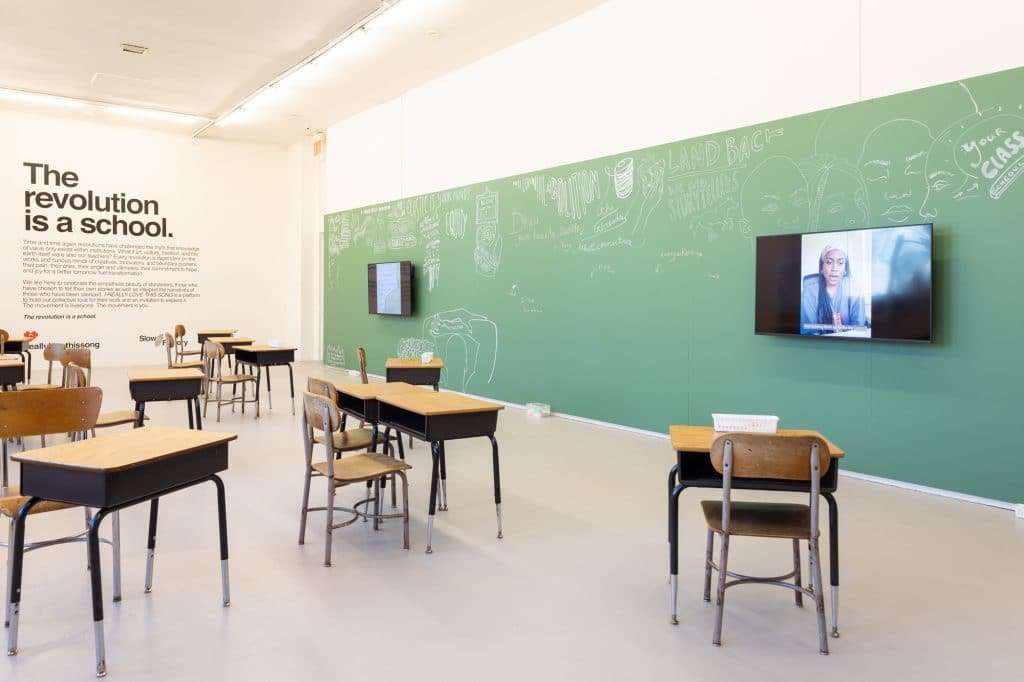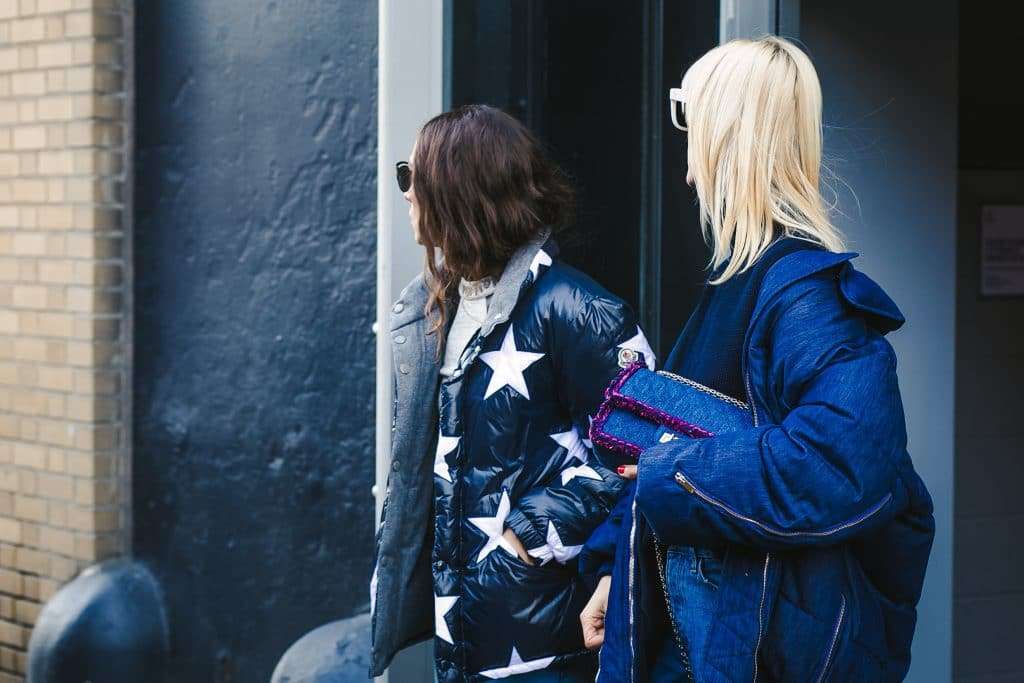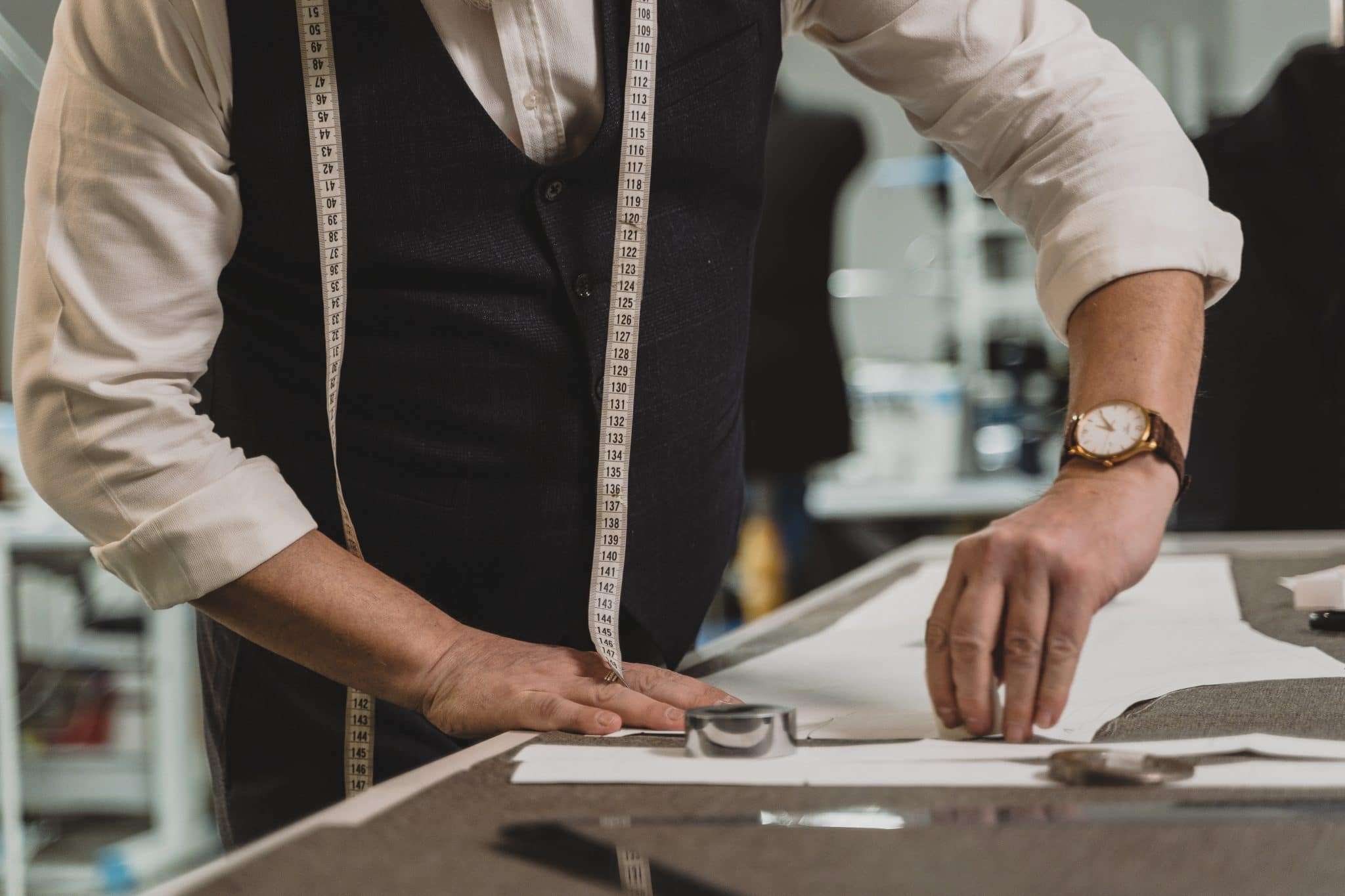As New York aims to reignite a once-thriving garment district, the sustainable Slow Factory takes up a residency.
Announcing a new partnership with New York City Economic Development Corporation (NYCEDC), Mayor Eric Adams kicked off the city’s Fashion Week with a commitment to slow fashion and local jobs in Brookyln—the city’s new garment district hub.
The Brooklyn Sunset Park neighborhood now known as the Made In NY garment hub, has been in development since 2019; it will be home to a number of garment producers, starting with Slow Factory, a non-profit organization and institute working on driving climate-positive solutions and building anti-racist communities.

“Sunset Park is an environmental justice community to its core and that is why it is so important to have Slow Factory’s focus on sustainable fashion and racial equity lead the garment manufacturing hub,” said U.S. Representative Nydia M. Velazquez. “The path to reducing climate change runs straight through neighborhoods like Sunset Park, and the garment hub ought to stand as a model for communities across the country to create sustainable products, while empowering residents to be a part of this change through meaningful workforce development and empowerment.”
The community-forward organization includes workforce development and training, community outreach and events, and research and development. The Sunset Park location will mark its first brick-and-mortar location.
The Made in NY campus is being built by Gilbane Development Company, which the city says has a proven track record of using New York City-certified Minority- and Women-Owned Business Enterprise (M/WBE) subcontractors and suppliers. The city says currently, M/WBE participation for the campus is at 60 percent.
Slow Factory
The new location will also serve as home to Slow Factory’s Open Edu program—a free series that highlights climate justice and solutions including climate-positive design. It’s intended to integrate with the Slow Factory Labs, which is focused on regenerative materials innovations, chiefly its Slowhide vegan leather.
Slow Factory has been developing vegan leather products using materials bio-fabricated from SCOBYs, the foundation of kombucha often called “the mother.” It grows into a thick mushroom-like substance that can be converted into a luxury material.
The factory facility is expected to also host waste-to-resource training and a focus on deadstock and textile waste production.
Slow Factory will also open its Slow Factory Institute, a training program aimed at leveraging climate-positive education and training for marginalized communities. The Institute includes classrooms, a theater, and community space.
“This school presents a revolutionary opportunity to offer a pragmatic, future-oriented curriculum in Sunset Park, Brooklyn,” said Céline Semaan, executive director, Slow Factory.
The new garment hub is expected to create 460 fashion jobs, training for 500, and an estimated $57 million in revenue.
“New York City was already the fashion capital of the United States, but the redevelopment and creation of new fashion jobs at the Made in NY campus in Brooklyn will only solidify our place as the city of swagger,” Mayor Adams said. “Slow Factory’s opening at the garment hub in Sunset Park will help create hundreds of fashion jobs onsite and bring tens of millions of dollars of direct economic output to New York City. Additionally, in New York, we are leading the way and showing that prioritizing sustainability can go hand-in-hand with the fashion industry.”
Reducing fashion’s carbon footprint is not only trendsetting, but necessary in the fight against climate change,” said Rachel Loeb, president and CEO, NYCEDC. “Slow Factory will build on Sunset Park’s strong foundation of garment manufacturing and green innovation with cutting edge solutions and meaningful workforce development that puts New York City on a path to strengthen, grow, and change the manufacturing industry for the better.”
Sustainable Fashion in New York
Last month, legislation was introduced by New York State Senator Alessandra Biaggi and Assemblywoman Anna R. Kelles that would hold big fashion brands accountable for carbon emissions. If passed, the legislation would require any fashion brands and retailers with revenue greater than $100 million to increase transparency about their operations and disclose details about their supply chains and production.
Semaan isn’t convinced that it’s the best path forward.
“It’s a great step forward, sure — because the bar is so low,” she told Vogue Business. “As with all well-meaning regulations and standards, the devil is in the details, and the enforcement.”

Part of the concern is that brands would only need to map 50 percent of their supply chains, a move that could see them highlight their best examples.
Last November, Semaan developed a report with the nonprofit Stand.Earth that linked more than 100 fashion brands to Amazon deforestation, mainly through the procurement of leather.
“Mapping suppliers doesn’t necessarily get us any closer to stopping the destruction,” she says.
But in Brooklyn, Semaan is focused on mapping an entirely different situation. “We are working diligently to fill a critical educational gap that focuses on climate justice and human rights, while creating a community hub for education and skills training.”


